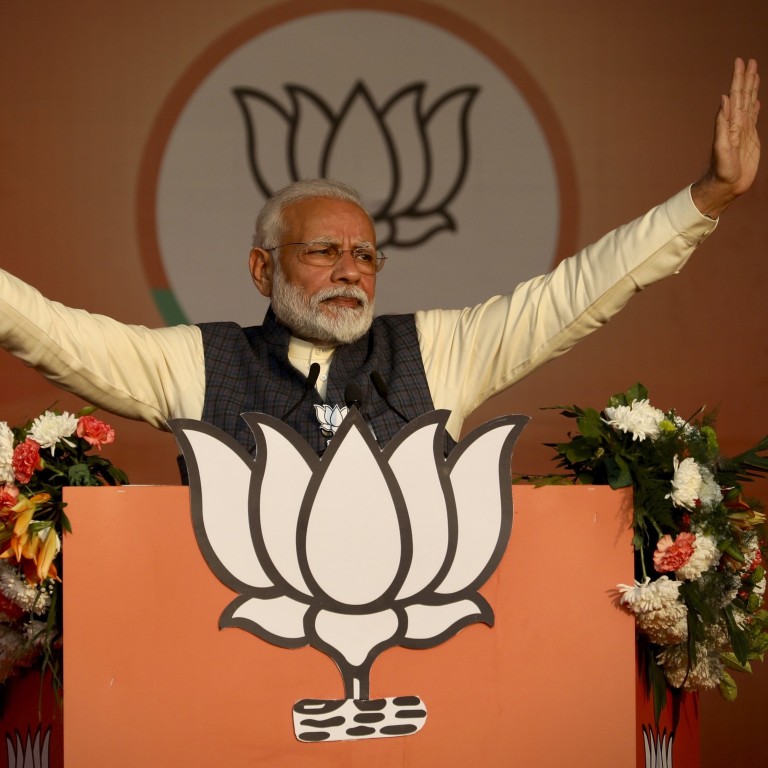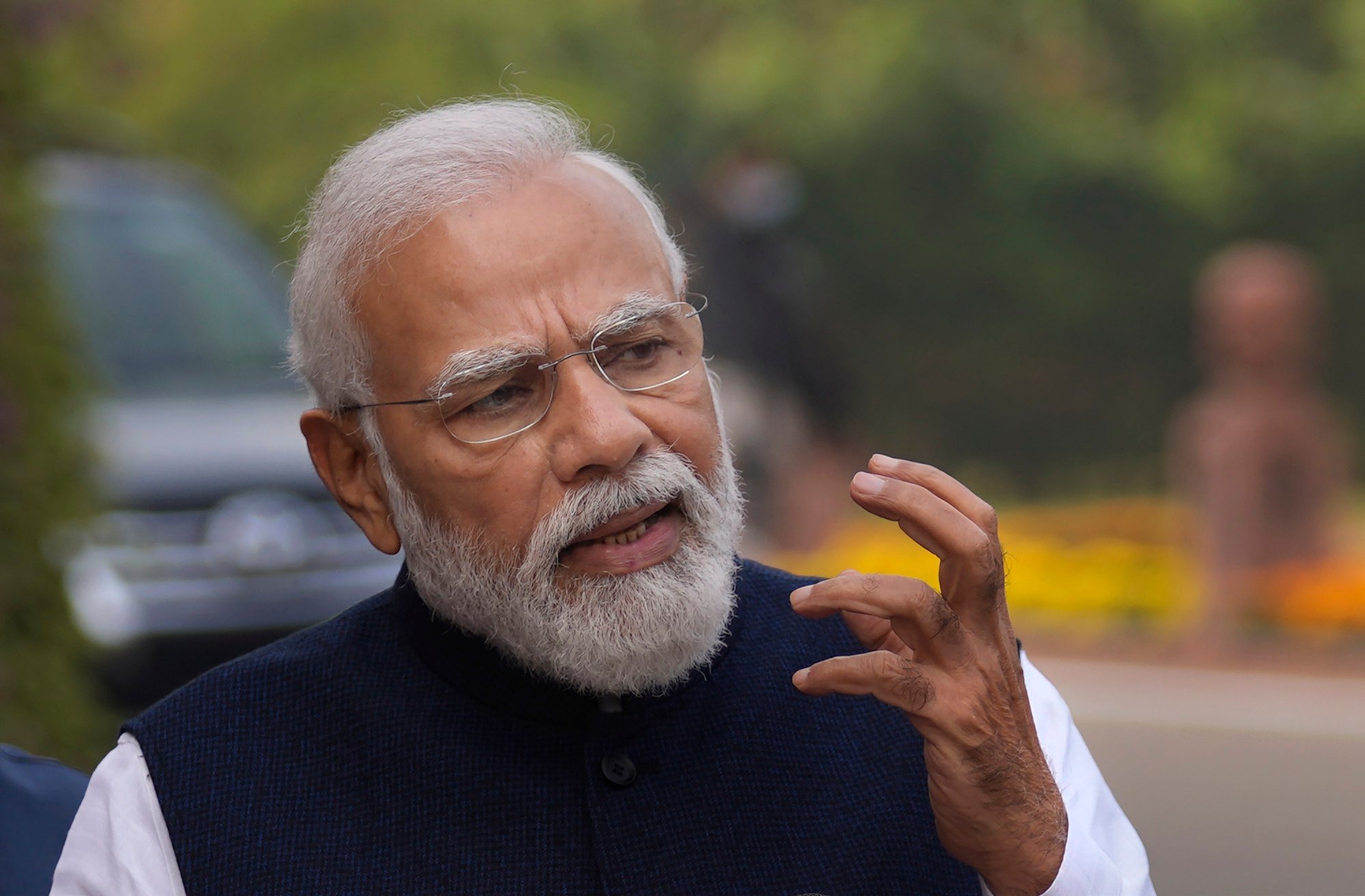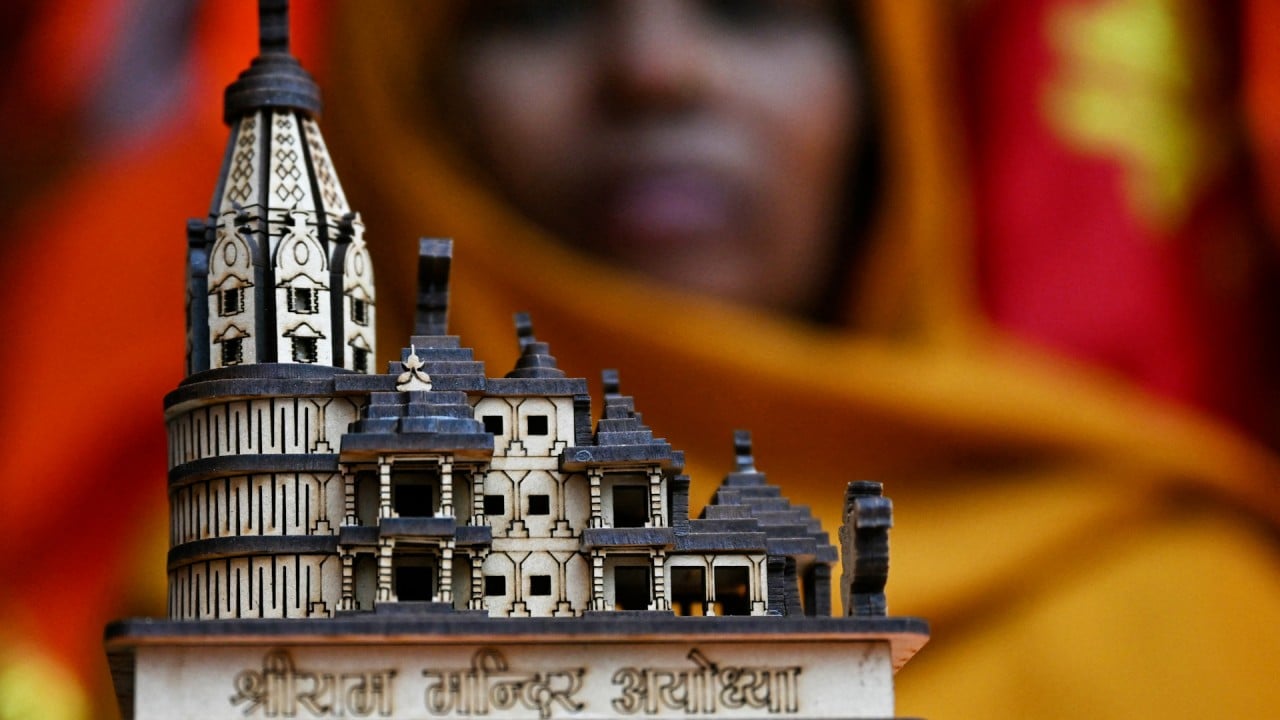
Modi’s ruling BJP set to bring contentious common civil laws in Indian state
- The code is divisive, as many minority Muslims who criticise the BJP for its hardline Hindu-first image see it as interference with centuries-old Islamic practices
- Currently, India’s Hindus, Muslims, and Christians can follow their own personal laws and customs, or a secular code, for marriage, divorce, and inheritance
An Indian state ruled by Prime Minister Narendra Modi’s party is set to introduce contentious new common personal laws that will apply across religions next week, a template other state officials say they will look to follow.
Currently, India’s Hindus, Muslims, Christians and large tribal populations can follow their own personal laws and customs, or an optional secular code, for marriage, divorce, adoption and inheritance.
Framing a national common law has been one of the three core, decades-old promises of Modi’s Bhartiya Janta Party (BJP). It has fulfilled the other two: building a fiercely contested grand Hindu temple, and removing the autonomy of the Muslim-majority region of Jammu and Kashmir.
The northern state of Uttarakhand, nestled in the Himalayan foothills, is expected to unveil a Uniform Civil Code (UCC) bill next week, officials said.
The move comes ahead of Modi’s bid to win a rare third term in general elections to be held by May, and may further help consolidate the Hindu vote, analysts say.
The UCC is a divisive issue, as many minority Muslims who criticise the BJP for its hardline Hindu-first image see it as interference with centuries-old Islamic practices, including polygamy and instant divorce, which was outlawed by the federal government in 2019.
‘India, not Hindia’: row over India’s languages heats up during Hindi Diwas
Calling the UCC a “trial balloon” ahead of the elections, federal lawmaker and a prominent Muslim voice Asaduddin Owaisi said Hindu nationalists professed to like non-uniformity, except when it came to Muslims.
Although no draft of the UCC has been presented, BJP leaders have said it primarily has to do with modernising Muslim personal laws.
A committee set up in Uttarakhand in 2022 to draft the code will submit its work to the state government on Friday. It is likely to be presented to the state’s legislative body next week, two officials said.
“Several state governments across India are looking at whether a uniform civil code could be implemented,” Nalin Kohli, a national BJP spokesperson said. “The systematic process to get [a] uniform civil code in several states has begun.”
Uttarakhand’s chief minister, Pushkar Singh Dhami, said on social media platform X that his ministers would study the draft and “start the process to make it into a bill and then an act”.
Modi’s government ended special privileges enjoyed by Kashmir in August 2019 and earlier this month unveiled a grand temple to Hindu deity Ram replacing a Mughal-era mosque razed by radical Hindu groups in 1992.
Personal laws can be legislated by both federal and state governments, and other BJP-ruled states have said they could use the Uttarakhand UCC draft as a template.
Earlier this month, BJP’s Himanta Biswa Sarma, chief minister of Assam state, said: “I am waiting to see the UCC bill of Uttarakhand and once that is done, we will bring the same legislation” with some modifications.
A committee appointed by Sarma last year is also expected to submit a draft bill to ban polygamy in the state next week.
Keshav Prasad Maurya, Deputy Chief Minister of the most populous state of Uttar Pradesh, told Reuters that “wherever the BJP is [in power] the possibility of bringing UCC has been and will always be there”, adding it will be introduced “at the right time”.

BJP expands control
India’s ruling party has expanded its control to nearly two thirds of the country’s states, strengthening Modi’s bid to extend his decade in office.
The BJP either outright or as a coalition member now governs 17 of India’s 28 states after adding the eastern region of Bihar into its fold this weekend. The states have a total population of 720.6 million and account for about 55.24 per cent of the 543 lawmaker seats in parliament.
Control at the state level doesn’t necessarily mean voters will support the BJP in national elections. However, it does bolster the ruling party’s chances, especially with the opposition alliance – known by the acronym I.N.D.I.A. and created last year to dent Modi’s popularity – now weakened by the latest developments in Bihar.
“It’s taken the wind out of the sails of the I.N.D.I.A. alliance,” said Neerja Chowdhury, an author and political columnist. “The I.N.D.I.A. alliance was a bit like a house of cards and if you remove one card, the whole thing comes crashing down.”
Low visibility, poor messaging plague India’s opposition ahead of key polls
The other 11 states not in the BJP’s control are ruled by regional parties or the Indian National Congress, the country’s main opposition party.
The latest developments in Bihar saw the chief minister of the state, notorious for switching political sides, dissolving the opposition-led government to join forces with Modi’s party. There are other cracks in the opposition alliance as well, with some parties seeking to contest elections on their own in some states.
The Election Commission of India is expected to announce the dates for the polls in coming weeks, with voting likely to take place around April and May. More than 945 million registered voters will be heading to the polls to elect the 543 lawmakers to the lower house of the Indian parliament. In the 2019 vote, about 614 million people voted out of 911 million who registered.
The BJP won 303 of the parliamentary seats in the 2019 national elections, crossing the halfway mark of 272 comfortably on its own. At the end of its term, the party currently holds 290 seats or 55.45 per cent of the sitting house. With Bihar’s switch, the BJP and its allies govern states have a total of 300 seats.



